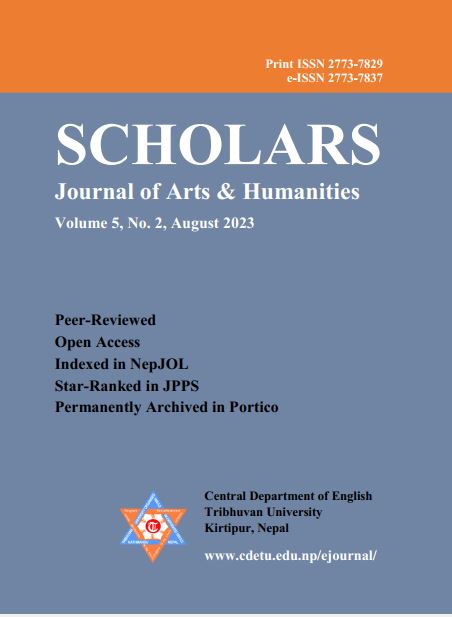Ontological Insecurity in Doris Lessing’s The Grass Is Singing
DOI:
https://doi.org/10.3126/sjah.v5i2.57500Keywords:
Psychological distress, memory, false-self, ontological insecurityAbstract
Through her novel The Grass Is Singing, Doris Lessing has continuously questioned the stereotypical outlook of our society and politics. In this novel, she deals with the human psyche focusing on MaryTurner’s character by portraying a vivid picture of the psychological struggles that she goes through since her childhood. While Mary is struggling inwardly, her memory has been playing a pivotal role in her psyche – her unhappy childhood memories and her memories of city life – and all these put a profound impact upon her psyche, creating a false-self and leading her towards ‘ontological insecurity’. Based on the psychopathological and sociological analysis provided by Dr. R.D. Laing and Anthony Giddens respectively, this paper examines Lessing’s projection of the character Mary as an ontologically insecure person by delving deep into Mary’s psyche. The study explores the three stages of anxiety in Mary’s psyche induced by ontological insecurity, putting memories and societal factors as the threshold of her psychosomatic sufferings and shows how Mary despite her psychological sufferings struggles to assert her sense of self by constructing, reconstructing and deconstructing her false-self.
Downloads
Downloads
Published
How to Cite
Issue
Section
License

This work is licensed under a Creative Commons Attribution 4.0 International License.
© Central Department of English, Tribhuvan University and Authors




